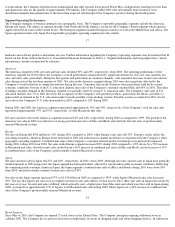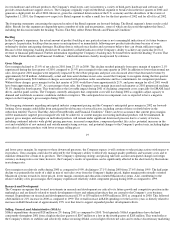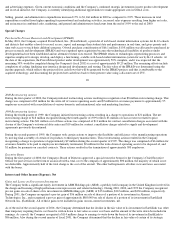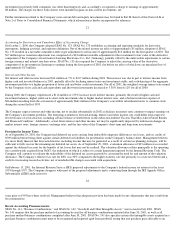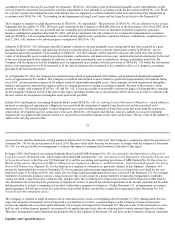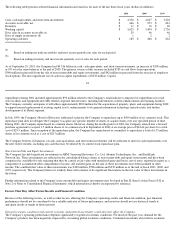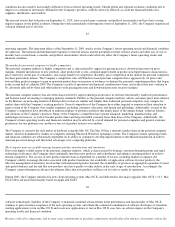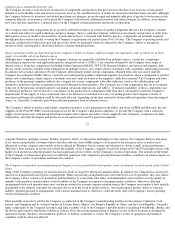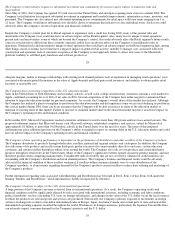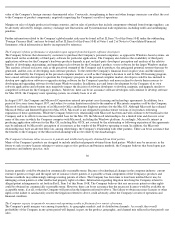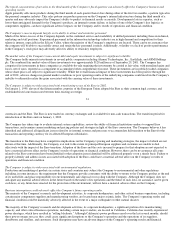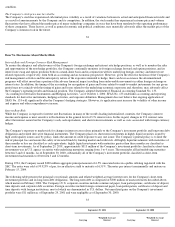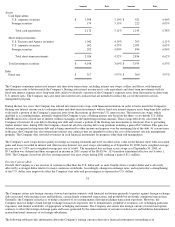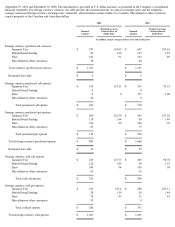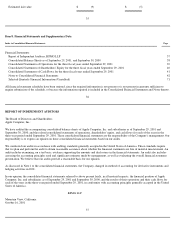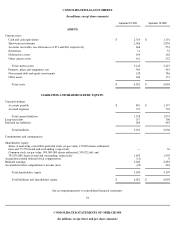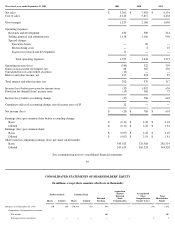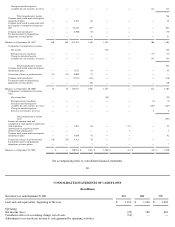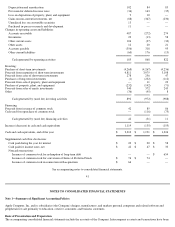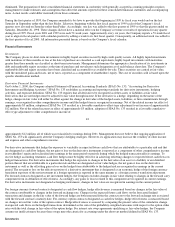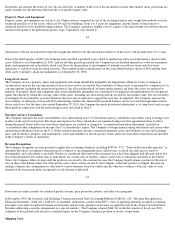Apple 2001 Annual Report Download - page 25
Download and view the complete annual report
Please find page 25 of the 2001 Apple annual report below. You can navigate through the pages in the report by either clicking on the pages listed below, or by using the keyword search tool below to find specific information within the annual report.
The typical concentration of net sales in the third month of the Company's fiscal quarters can adversely affect the Company's business and
operating results.
Apple generally sells more products during the third month of each quarter than it does during either of the first two months, a pattern typical in
the personal computer industry. This sales pattern can produce pressure on the Company's internal infrastructure during the third month of a
quarter and may adversely impact the Company's ability to predict its financial results accurately. Developments late in a quarter, such as
lower-than-anticipated demand for the Company's products, an internal systems failure, or failure of one of the Company's key logistics or
components suppliers, can have significant adverse impacts on the Company and its results of operations and financial condition.
The Company's success depends largely on its ability to attract and retain key personnel.
Much of the future success of the Company depends on the continued service and availability of skilled personnel, including those in technical,
marketing and staff positions. Experienced personnel in the information technology industry are in high demand and competition for their
talents is intense, especially in the Silicon Valley, where the majority of the Company's employees are located. There can be no assurance that
the company will be able to successfully attract and retain the key personnel it needs. Additionally, volatility or a lack of positive performance
in the Company's stock price may adversely affect its ability to retain key employees.
The market value of the Company's non-current debt and equity investments is subject to significant volatility.
The Company holds minority investments in several public companies including Akamai Technologies, Inc., EarthLink, and ARM Holdings
plc. The combined fair market value of these investments was approximately $128 million as of September 29, 2001. The Company has
categorized its investments in these companies as available-for-
sale requiring the investments be carried at fair value, with unrealized gains and
losses, net of taxes, reported as a component of accumulated other comprehensive income. These investments are in publicly traded companies
whose share prices are subject to significant volatility. While the overall financial impact of these investments has been positive through the
end of 2001, adverse changes in general market conditions or poor operating results of the underlying companies could result in the Company's
inability to ultimately realize the gains associated with the carrying value of these investments.
The Company is subject to risks associated with transitioning to use of the Euro in 2002.
On January 1, 1999, eleven of the fifteen member countries of the European Union adopted the Euro as their common legal currency and
established fixed conversion rates between their existing sovereign
31
currencies and the Euro. The Euro is now traded on currency exchanges and is available for non-cash transactions. The transition period for
introduction of the Euro ends on January 1, 2002.
The Company has taken steps to evaluate internal system capabilities, review the ability of financial institution vendors to support Euro
transactions, and examine current marketing and pricing policies and strategies in light of the Euro conversion. The Company believes it has
identified and addressed all significant issues related to its internal systems and processes to accommodate full transition to the Euro for the
transaction and reporting currency for its affected European subsidiaries.
The transition to the Euro may have competitive implications on the Company's pricing and marketing strategies, the impact of which are not
known at this time. Additionally, the Company is at risk to the extent its principal European suppliers and customers are unable to deal
effectively with the impact of the Euro transition. Adoption of the Euro and the costs incurred to prepare for that adoption are not expected to
have a material adverse effect on the Company's results of operations or financial condition. However, there can be no assurance all issues
related to the Euro conversion have been identified or that adoption issues identified will be addressed properly or on a timely basis. Failure to
properly identify and address issues associated with adoption of the Euro could have a material adverse affect on the Company's results of
operations and financial condition.
The Company is subject to risks associated with environmental regulations.
Production and marketing of products in certain states and countries may subject the Company to environmental and other regulations
including, in some instances, the requirement that the Company provide consumers with the ability to return to the Company product at the end
of its useful life, and place responsibility for environmentally safe disposal or recycling with the Company. Although the Company does not
anticipate any material adverse effects in the future based on the nature of its operations and the thrust of such laws, no assurance can be given
such laws, or any future laws enacted for the protection of the environment, will not have a material adverse effect on the Company.
Business interruptions could adversely affect the Company's future operating results.
The majority of the Company's research and development activities, its corporate headquarters, and other critical business operations, including
certain major components suppliers and manufacturing vendors, are located near major seismic faults. The Company's operating results and
financial condition could be materially adversely affected in the event of a major earthquake or other natural disaster.
The majority of the Company's research and development activities, its corporate headquarters, a significant portion of its manufacturing
capacity, and other critical business operations, including certain major vendors, are located in California. California has recently experienced
power shortages, which have resulted in "rolling blackouts." Although California's power problems eased over the last several months, should
these power outages reoccur, they could cause significant disruptions to the Company's operations and the operations of its suppliers,
distributors and resellers, and customers. Such disruptions may have an adverse impact on the Company's operating results and financial


